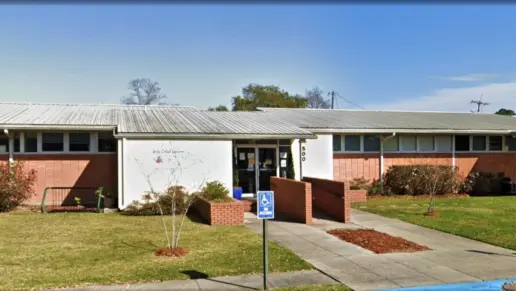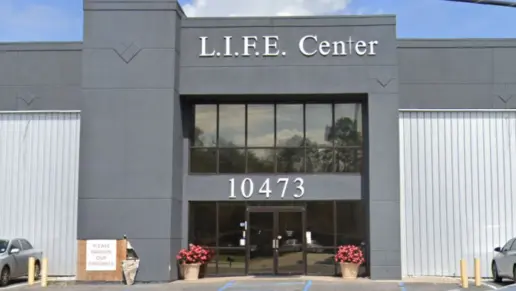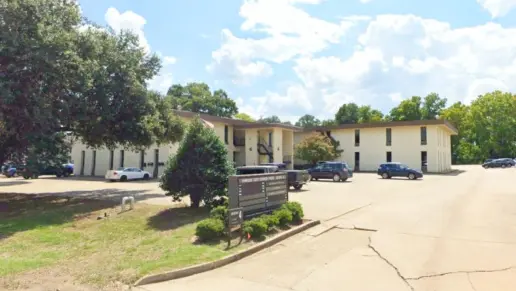The 11 days I was in Beacon hospital in Lacombe, my depression and anxiety got worse. The staff were abusive, neglectful, cold, and uncaring. I usually have a normal blood pressure reading, but during my stay, it ran between 156 over 85 to 184 over 95 with blood pressure med ...
About Beacon Behavioral Hospital – Northshore
Beacon Behavioral Hospital, in Lacombe, Louisiana, provides comprehensive mental healthcare services for adults, including specialized programming for clients with co-occurring addiction and mental illness. They offer inpatient, intensive outpatient (IOP), standard outpatient (OP), and aftercare programming, including dedicated services for seniors.
Beacon Behavioral, LLC is Louisiana’s premier full-service Mental Health Program. Our highly-trained, caring therapy staff provides comprehensive and confidential treatment to those suffering from depression and other mood disorders, changes in behavior, psychosis and major declines in functioning. The IOP can also assist with adults that have a substance use issue that may be caused by their mental health condition.
Treatment at this level of care is a structured, therapeutic environment that will incorporate cognitive-behavioral therapy, psychoeducation, psychodrama, solution-based therapy, and techniques related to dialectical behavioral therapy. Each client will also participate in individual medication management sessions with our psychiatrist and/or psychiatric nurse practitioner while enrolled in the Intensive Outpatient Program.
Ages 18 years and older
Program is 3-5 days a week; including 3 therapeutic group sessions each day
Complete Psychiatric Assessment
Medication Management
Individualized Treatment Planning
Lunch and light snacks provided
Transportation assistance available
Free confidential pre-admission assessment
Approved by most major insurances, Medicaid and Medicare
CO-OCCURRING PROGRAMMING AT INTENSIVE OUTPATIENT PROGRAM:
At times, patients may have a substance abuse or dependence diagnosis along with a mental health diagnosis. They may have self-medicated their symptoms with alcohol or drugs, making it difficult to determine if the addiction or mental health issue presented itself first. We refer to this as a co-occurring condition.
An untreated mental health condition will make a person more vulnerable to substance abuse. Likewise, relapse will worsen a mental health condition. Our co-occurring treatment team includes psychiatrists and knowledgeable counseling staff who can help patients manage their mental health and substance abuse simultaneously.
Our Intensive Outpatient Program can address co-occurring issues in a comfortable, supportive setting with a focus on the following:
Attainment of cognitive and behavioral skills needed to manage symptoms and to develop new social supports
Identification of behavior and attitude changes necessary to achieve and maintain successful recovery, including how to effectively manage relapse
Education of participants regarding the factors that may have led to the episode
Drug and alcohol education
Latest Reviews
Location
Location
Accepted Insurance
Other Forms of Payment
Private insurance refers to any kind of healthcare coverage that isn't from the state or federal government. This includes individual and family plans offered by an employer or purchased from the Insurance Marketplace. Every plan will have different requirements and out of pocket costs so be sure to get the full details before you start treatment.
Self-pay involves paying for treatment out of your own pocket. You can use savings or credit, get a personal loan, or receive help from family and friends to fund your treatment. If you don't have insurance or your insurance plan doesn't cover a specific program, self-pay can help ensure you still get the care you need.
Medicare is a federal program that provides health insurance for those 65 and older. It also serves people under 65 with chronic and disabling health challenges. To use Medicare for addiction treatment you need to find a program that accepts Medicare and is in network with your plan. Out of pocket costs and preauthorization requirements vary, so always check with your provider.
Military members, veterans, and eligible dependents have access to specific insurance programs that help them get the care they need. TRICARE and VA insurance can help you access low cost or no cost addiction and mental health treatment. Programs that accept military insurance often have targeted treatment focused on the unique challenges military members, veterans, and their families face.
Medicaid is a state based program that helps lower-income individuals and families pay for healthcare. Medicaid covers addiction treatment so those enrolled can use their coverage to pay for rehab. When a program accepts Medicaid the client often pays very little or nothing out of their own pocket.
Addiction Treatments
Levels of Care
Treatments
Mental health rehabs focus on helping individuals recover from mental illnesses like bipolar disorder, clinical depression, anxiety disorders, schizophrenia, and more. Mental health professionals at these facilities are trained to understand and treat mental health issues, both in individual and group settings.
Programs



Clinical Services
Group therapy is any therapeutic work that happens in a group (not one-on-one). There are a number of different group therapy modalities, including support groups, experiential therapy, psycho-education, and more. Group therapy involves treatment as well as processing interaction between group members.
In individual therapy, a patient meets one-on-one with a trained psychologist or counselor. Therapy is a pivotal part of effective substance abuse treatment, as it often covers root causes of addiction, including challenges faced by the patient in their social, family, and work/school life.
Whether a marriage or other committed relationship, an intimate partnership is one of the most important aspects of a person's life. Drug and alcohol addiction affects both members of a couple in deep and meaningful ways, as does rehab and recovery. Couples therapy and other couples-focused treatment programs are significant parts of exploring triggers of addiction, as well as learning how to build healthy patterns to support ongoing sobriety.
Research clearly demonstrates that recovery is far more successful and sustainable when loved ones like family members participate in rehab and substance abuse treatment. Genetic factors may be at play when it comes to drug and alcohol addiction, as well as mental health issues. Family dynamics often play a critical role in addiction triggers, and if properly educated, family members can be a strong source of support when it comes to rehabilitation.
Contact Information
64026 LA-434
STE 300
Lacombe, LA 70445








